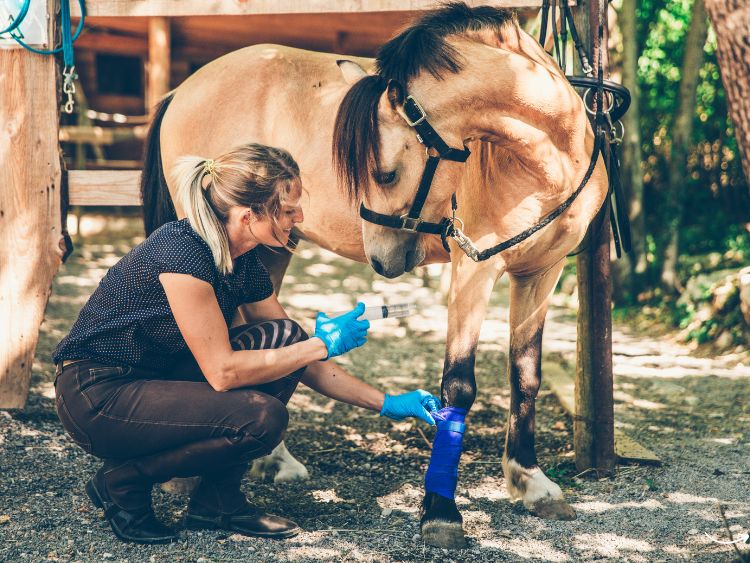Hey there, fellow animal lovers! If you’ve clicked on this article, chances are, you’re either a proud pet parent or considering becoming one. Well, you’ve come to the right place! Today, we’re diving into the wonderful world of companion animal care. We’ll cover everything from the basics to some advanced tips and tricks to ensure your furry, feathered, or scaly friend lives a happy, healthy life.
What is Companion Animal Care?
Companion animal care encompasses all the activities and responsibilities involved in looking after pets that live with us for companionship rather than utility or work. These animals could be anything from dogs, cats, and birds to rabbits, reptiles, and fish. Caring for them involves providing proper nutrition, shelter, medical care, and emotional support.
Importance of Proper Nutrition
Just like humans, animals need a balanced diet to thrive. Ensuring your pet gets the right mix of proteins, fats, carbohydrates, vitamins, and minerals is crucial.
- Dogs and Cats: These pets require high-quality commercial food tailored to their age, size, and health conditions. You can also include some fresh vegetables and meats, but avoid toxic foods like chocolate, grapes, and onions.
- Birds: A balanced diet for birds includes seeds, fruits, vegetables, and specially formulated pellets.
- Reptiles: Reptilian pets need a diet that mimics their natural food sources, which could include insects, leafy greens, and specially designed reptile food.
Shelter and Comfort
Providing a safe, comfortable living environment is paramount. Each type of pet has different housing needs:
- Dogs and Cats: A cozy bed, access to a yard or safe outdoor space, and a clean, hygienic living area are essential.
- Birds: A spacious cage with perches, toys, and regular out-of-cage time.
- Reptiles: A terrarium with the right temperature, humidity, and hiding spots.
Medical Care and Regular Check-ups
Ensuring your companion animal gets regular veterinary care is vital for their health and longevity. Here are some key aspects to consider:
Vaccinations
Vaccinations protect pets from various diseases. Dogs need shots for rabies, parvovirus, and distemper, while cats need vaccines for feline leukemia and panleukopenia. Birds and reptiles also have specific vaccination needs.
Parasite Control
Regular treatment for fleas, ticks, and worms is essential. Products like spot-on treatments, collars, and oral medications can help keep these pests at bay.
Dental Care
Pets can suffer from dental issues just like humans. Regular brushing, dental treats, and professional cleanings can prevent problems like gingivitis and tooth decay.
Emotional Well-being and Enrichment
A happy pet is a healthy pet! Emotional well-being is just as important as physical health. Here are some tips to ensure your pet is mentally stimulated and happy:
Play and Exercise
- Dogs: Regular walks, playtime with toys, and socializing with other dogs.
- Cats: Interactive toys, scratching posts, and climbing structures.
- Birds: Toys, puzzles, and opportunities to fly.
Training and Socialization
Training helps pets understand what’s expected of them, which can reduce stress and behavioral problems. Socialization with other animals and humans is equally important.
Common Health Issues in Companion Animals
Understanding common health issues can help you spot problems early and seek treatment promptly.
Dogs and Cats
- Obesity: Often due to overfeeding and lack of exercise. Manage their diet and ensure regular activity.
- Dental Disease: Regular dental care can prevent this.
- Arthritis: Especially common in older pets. Look for signs of stiffness and reluctance to move.
Birds
- Respiratory Issues: Often caused by poor air quality or improper diet.
- Feather Plucking: Can indicate stress or medical issues.
Reptiles
- Metabolic Bone Disease: Caused by improper diet and lighting.
- Respiratory Infections: Often due to inadequate temperature and humidity levels.
FAQs About Companion Animal Care
Q: How often should I take my pet to the vet? A: Annual check-ups are recommended, but senior pets or those with health issues may need more frequent visits.
Q: What are some signs that my pet is unwell? A: Changes in appetite, behavior, or energy levels, as well as vomiting, diarrhea, and unusual vocalizations, can all indicate health problems.
Q: How can I ensure my pet gets enough exercise? A: Incorporate play and physical activities into their daily routine. For dogs, regular walks are essential. For cats, interactive toys can keep them active.
Q: Is pet insurance worth it? A: Yes, pet insurance can help cover unexpected medical expenses, making it easier to afford quality care for your pet.
Summary
Caring for a companion animal is a rewarding experience that brings immense joy and fulfillment. By ensuring proper nutrition, medical care, emotional well-being, and regular exercise, you can give your pet a happy, healthy life. Remember, each pet is unique and may have specific needs, so always stay informed and proactive about their care.
Authoritative Links
Here are some authoritative links to help you learn more about companion animal care:

